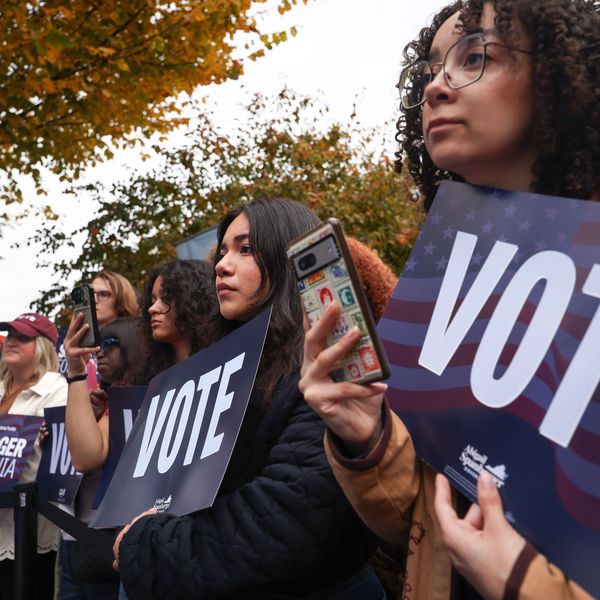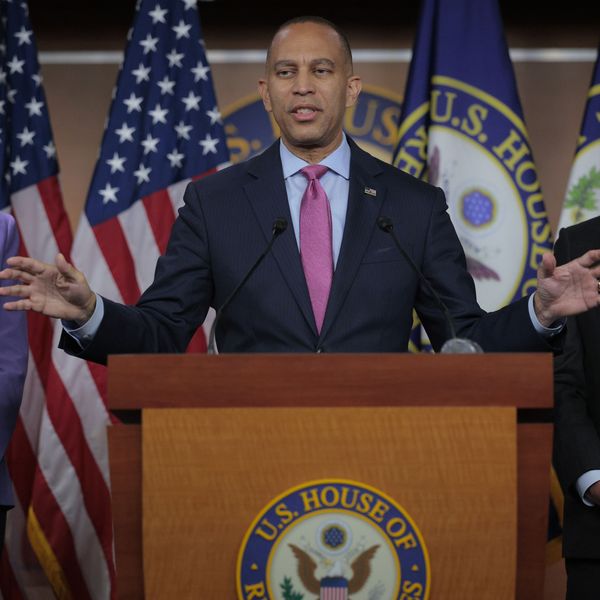It was billed as a unity celebration.
But there was not much evidence of that as Spartanburg's African American residents streamed in to the city's main auditorium as part of a week of "celebrating people of all cultures and ethnicity".
"Only a few white folks will come out to something like this," said Lisa Campbell, an African American student. "It's racism. Racism is still prevalent here. It's not real subtle."
That's why Campbell laughs at the question as to whether she'll be voting in South Carolina's Republican primary election on Saturday. So does another woman at the concert to mark Martin Luther King Day, Kathy Edwards.
"It's all about this with the Republicans," she says pinching her own black skin. "I'm 58 now. It's better than it was but with the Republicans it's all about race even if they don't say it."
South Carolina runs an "open" primary which means that any resident of the state who cares to can vote to choose the Republican presidential candidate.
More than one in four people in South Carolina are African American, as is half the population of Spartanburg in the deeply religious and conservative northwest of the state.
But very few vote in Republican primaries even though a significant black turnout could have a major impact on the outcome. Four years ago, less than 2% of those voting in the Republican primary were from racial minority groups whereas more than half of those who participated in the Democratic primary were black.
Ask why and the explanations spill out. For some it is the residual racism they see evident in issues such as the recent South Carolina law requiring voters to have photo identification, a measure widely seen in the black community as intended to disenfranchise poorer African Americans who don't have driver's licences. The federal government agrees and has blocked implementation of the law.
For others it is the hostile treatment of Barack Obama by the Republican party in Congress, which some critics see as beyond the usual cut and thrust of politics. There are also the campaigns to delegitimise his presidency by questioning whether he was born in the US, to paint him as a secret Muslim and the Tea Party movement's talk of "taking our country back".
"White folks around here talk about taking the country back when it hasn't been anywhere," said Edwards. "The fact is they don't like a black man as president. They think he has taken something that belongs to them."
Then there are the Republican candidates themselves who have done little to win over black voters in South Carolina with their observations on African Americans and poverty.
Rick Santorum has said he did not want to "make black people's lives better by giving them somebody else's money". Newt Gingrich has said African Americans should "demand paychecks and not be satisfied with food stamps" and suggested that children in poor families should be put to work as school janitors in order to learn work ethic.
Read the full article at the Guardian


